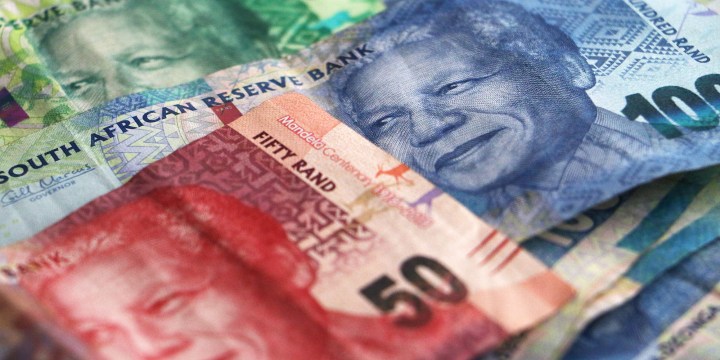POLITICAL PARTY FUNDING OP-ED
A strong democracy comes with a hefty price tag — and it’s worth every cent

South African political parties are struggling to keep afloat. Is this due to insufficient funding or because the available funds are not being appropriately applied? Is there an adequate balance between private funding and state funding?
South Africa would do well to look to European countries for important lessons on how to better finance our political parties. For one, the potential synergy between foundations, political parties and broader society is an obvious oversight within the South African environment.
The perils of defunding the party-political dispensation
When ushering in the new democratic dispensation in 1994, no laws, rules and regulations were in place or introduced to regulate private donations to political parties. Following a number of funding scandals – which involved parties from across the spectrum – public opinion started to form in favour of introducing some form of regulation.
However, a consequence of the ensuing transparency regulations appears to be that corporates and wealthy individuals become more reluctant to give to political parties where there are high disclosure requirements.
In South Africa, with the introduction of the Political Party Funding Act (PPFA) in 2019 (legislation passed in 2018), parties have been crying foul over its unintended consequences, with them receiving fewer private donations.
Donors have become apprehensive, knowing that their donations would be open for public scrutiny, as it may lead to reprisals or affect their reputation.
The consequences of this are far-reaching: it is a fact that donations to political parties influence democracy. Be it direct or indirect, donations can materially impact on, influence and distort both the electoral process and the passage of legislation.
It has also proved to be a major motive for grand corruption.
The courts have listened by ruling that legislation be introduced to address the concerns. However, since the introduction of the legislation, private funding of political parties has, to a large degree, dried up, with many – including the ruling party – finding it difficult to meet their operational obligations.
Money in politics is not a problem per se, but rather, it is whether that money has been ethically secured, legally applied and fairly distributed among the political roleplayers.
Should a nation aspire to a well-functioning and effective representative democracy, it must accept that political parties – lest the country is to slide towards authoritarianism – need to be well-resourced and that money is necessary for inclusive democracy and effective governance, for allowing candidates and parties to reach out to voters and for them to build sustainable political organisations.
The two main streams of funding flowing into politics are private and state funding, the latter of which guarantees parties’ independence from the undue influence of private donors and ensures they “have the opportunity to compete in accordance with the principle of equal opportunity”.
Visit Daily Maverick’s home page for more news, analysis and investigations
But private contributions are also a form of political participation. Therefore, a balance needs to be achieved between encouraging moderate contributions and limiting unduly large contributions on the one hand, and state funding on the other.
It is helpful to evaluate the South African party-funding dispensation against international best practices. Some may argue that we cannot compare the democracy of a developing country such as South Africa, with its particular set of socioeconomic indicators, against the well-functioning democracies in developed nations such as those in Europe, and that only other African systems would be fairly comparable.
But it stands to reason that it would be foolhardy for South Africa to look to other systems that are clearly also dysfunctional if our aim is a well-functioning democracy.
When considering the amounts allocated directly to the parties (not including the ideologically aligned foundations), South African parties receive a mere third of those in Germany, and around half of those in Sweden and the Netherlands. This is reflected in purchasing power parity, therefore comparing apples with apples.
Regulators promote state funding as a means to mitigate against the losses parties may incur as a result of high disclosure regimes. But, should the state funding not be set at an appropriate level, it could have the opposite effect of weakening the parties’ operational performance.
In determining the appropriate level, governments will have to accept that democracy – and for that matter the fight against corruption – comes at a price and that, accordingly, the fiscus will have to provide the necessary resources. What that appropriate level is, is an open question.
The drying up of private donations to the parties is in itself not a bad thing. It is more the fact that the public funding to political parties has not been materially adjusted pre- versus post-PPFA.
Private funding has been cut off without the appropriate compensatory upward adjustment of the allocation to the Represented Political Parties Fund, that is, the fund managed by the Electoral Commission of SA, out of which the public funding is paid over to the political parties.
In addition, the defunding has been exacerbated by the fact that funding to political parties by provincial legislatures needed to be cancelled as a consequence of the introduction of the PPFA. Some provinces, such as Gauteng, had such arrangements, but the legislation had to be repealed once the PPFA came into effect.
So, the question remains: is South Africa’s democracy properly funded? It seems that while great strides have been made in improving the transparency regime, it has not gone hand-in-hand with the necessary concomitant increase in public funding.
The improvement on the one hand, but not on the other, amounts to a defunding of the party-political environment, which may very well have damaged the democratic dispensation more than the transparency advancements might suggest. This requires serious and urgent contemplation.
Any reasonable and informed citizen should understand the difficulties for the range of political parties to deliver an effective political programme on a combined R19.59 per eligible voter per annum, which is the current reality.
The public funding of political foundations: There is light yet
In addition to the public funds made available to the political parties, it is a well-established convention to fund politically aligned foundations as well. In the European democratic dispensation, politically aligned foundations play a crucial role in establishing and maintaining inter-party liaison and cooperation between themselves and like-minded parties internationally.
This is important given globalisation and the pivotal role of multilateral institutions. For parties to promulgate and explain their policy positions within the international community, they are required to connect and coordinate globally.
These foundations also play a crucial role in stimulating political and public policy dialogue, and they provide the political and public policymaking fraternity with well-researched empirical policy proposals and analyses that enrich the democratic discourse within society.
The interplay between foundations, political parties and indeed broader society is a glaring omission within the South African political environment. On the plus side, there is no lack of willing and competent political think tanks that are ready and able to add their considerable expertise to the discourse. But they lack sufficient resources to do so effectively.
This deficit in the democratic equation should be reviewed. Yes, it will come with a price tag, but this is to be expected if we wish for a fully functioning and effective democracy.
Considering the state of our young and, at times, flailing democracy, taking stock of the shape thereof, vis-à-vis more established democracies, serves as a useful benchmarking exercise. This was the objective of a recent study by the Inclusive Society Institute into the funding of South Africa’s democracy, where South Africa was benchmarked against Germany, Sweden and the Netherlands.
Political foundations
It found, among other things, that a strong feature of European democracies is the state-funded politically aligned, yet independent and autonomous, foundations.
Germany, for example, currently has six political foundations that receive funding from the public purse. Each foundation executes its work through the ideological lens of its “aligned” party in the Bundestag, the federal Parliament of Germany.
These foundations are tasked with promoting civic participation in the democratic processes, supporting young academic talent with scholarships and aiding the development of like-minded political parties and organisations abroad, with a view to strengthening the international democratic and human rights order.
They also offer sociopolitical and democratic education and help develop public policy proposals, and also provide information and policy analysis, both at home and abroad. Their purpose is to build and strengthen democracy and to solidify societal solidarity.
At the federal level, each party that is represented in the Bundestag is entitled to nominate a political foundation to receive public funding. It forms part of the national budget and appears as line items in various ministries. Funds are allocated to the various foundations on the basis of the proportional strength in the Bundestag of their ideologically aligned political parties.
The core funding is included in the budget of the Ministry of the Interior, while further project funding is included in the budgets of the Ministries of Economic Cooperation and Development, Education and Research, and Foreign Affairs.
International solidarity and advocacy
As in Germany, Sweden also has politically aligned foundations. But in contrast to the German foundations, which have both a domestic and international focus, in Sweden they are tasked with mainly international solidarity and advocacy. They play a very limited role in Swedish domestic politics. They work globally for democracy, human rights, peace and social justice, and support sister parties and organisations in official development assistance countries.
Unlike Germany, in Sweden there is no annual funding mechanism for the foundations. The Swedish foundations apply to the Swedish International Development Cooperation Agency for project funding and for the funding of communication activities.
While the foundations in these countries act autonomously and are legally and financially independent, each foundation is “politically associated and close to a political party”. Their work therefore stimulates and indirectly underpins the work of political parties.
In the Netherlands, there is a symbiotic relationship between the party and the foundations, and thus their funding is made through the parties.
The European foundations are well-resourced. Germany has a particularly generous public funding regime for political foundations. For South Africa to follow suit and compete would be acutely aspirational and is not realistic within the current environment.
However, Sweden and the Netherlands are more moderately funded, which could serve as a benchmark should South Africa decide to embrace such a model. It is proposed that such a regime should be given serious consideration.
Realistic policies
Case in point: our political party policy development processes are totally underfunded – some would argue non-existent – which often lead to ill-considered, untested, uncosted – even “pie in the sky” – policy proposals which can, and often do, amount to no more than unachievable sloganeering.
No wonder the lack of public trust in parties and the electorate’s charges of being served with empty promises by the parties during elections.
Such a dispensation can only strengthen our democracy. As the country benefits from properly funded foundations that serve as think tanks to develop ideas, policies and legislative proposals from their particular ideological vantage points, the battle of ideas helps enrich and improve the quality of legislation.
Civic education and training strengthen the constitutionally envisaged involved citizenry within a participatory democratic dispensation. In addition, it strengthens international cooperation and coordination, the absence of which often gives rise to wrong international relations decisions, not without consequence for the citizens these parties serve.
Foundations are rich treasure troves of talented people working towards finding solutions to the problems the country faces on a daily basis. Not giving them the tools to fulfil their potential and promise is an opportunity missed. The introduction of publicly funded party-aligned foundations, it is argued, will help strengthen and improve the entire political and democratic ecosystem.
Yes, there will be a marginal financial cost to the public purse. But, clearly, as is evident from the European systems, weighed against the benefits for the deepening of democracy; the strengthening of public policy development; the consequential improvement of legislation; the enabling of meaningful citizen involvement in the body politic, and the providing of opportunity for international political dialogue on matters global, it is bound to have a positive impact on the currently flailing confidence in our democracy and politics.
Goodness knows we need to restore hope and trust therein. DM
Daryl Swanepoel is the CEO of the Inclusive Society Institute. This article draws on the content of the recently published Inclusive Society Institute report, “Is South Africa’s democracy properly funded?”


















 Become an Insider
Become an Insider
Comments - Please login in order to comment.